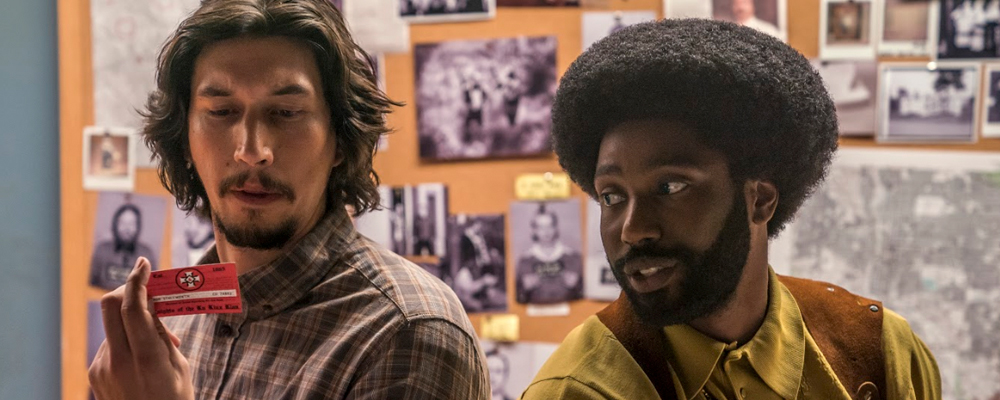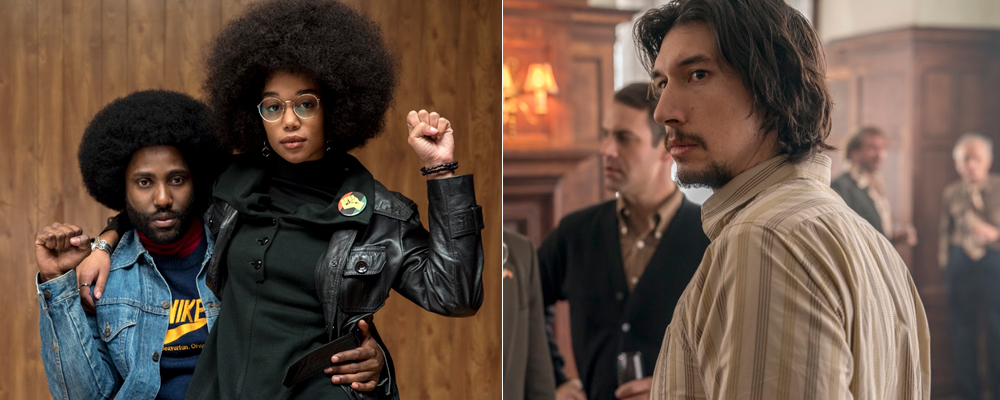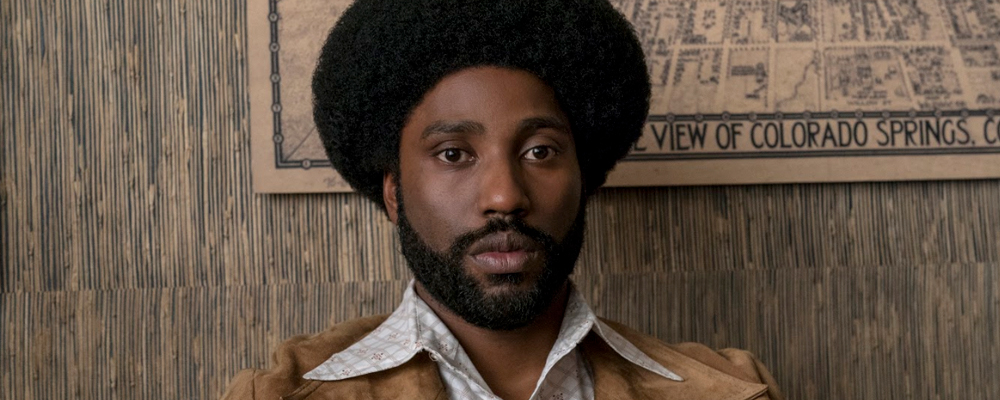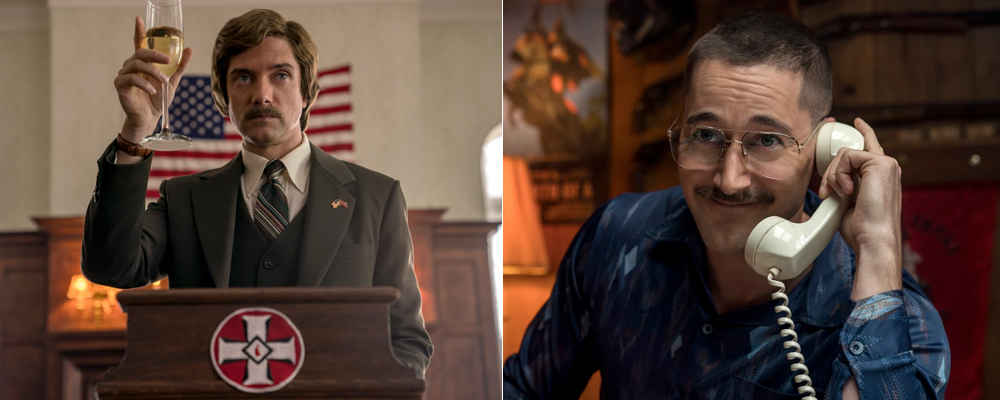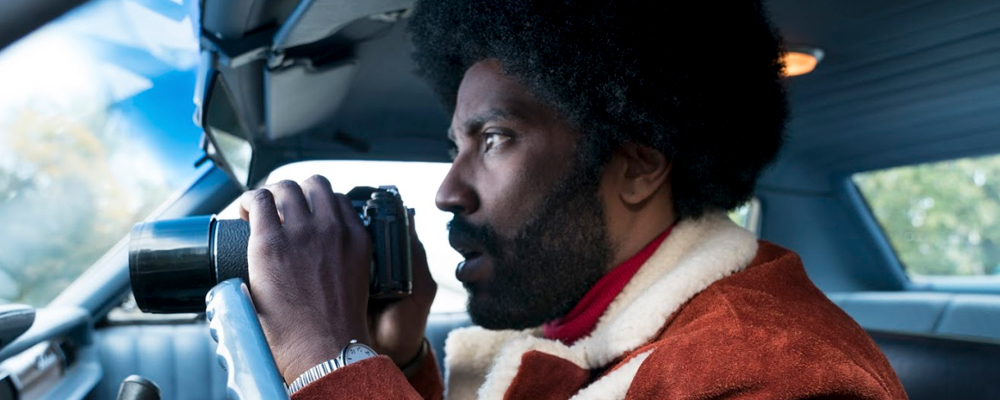Spike Lee Explores Race Relations and Identity in ‘BlacKkKlansman’
Sandra Miska
After 30 years of making films examining race relations and a myriad of controversial topics, director Spike Lee has based his latest release, “BlacKkKlansman,” on a true story that is almost as bizarre and fascinating as anything he could have written. Set in the 1970s, the film tells the story of Ron Stallworth (John David Washington), a Colorado detective who not only infiltrated a local chapter of the Ku Klux Klan, but also struck up a close relationship with the organization’s national leader, the infamous David Duke (Topher Grace). While Lee’s last film, the 2015 musical drama “Chiraq,” was heavily stylized, the comparatively more low-key “BlacKkKlansman” feels more appropriate for the political climate of 2018, although it is not without humor.
With his “soul brother” appearance, Ron may not fit the mold of the typical cop, but his traditional upbringing in a military family has installed in him a sense of duty that leads him to respond to an ad by the local police department seeking minority recruits. However, his real ambition is not to patrol the streets, but to work as an undercover officer. He gets his chance after his boss, Chief Bridges (Robert John Burke), sends him with a concealed microphone to talk given by a former Black Panther leader, Kwame Ture (Corey Hawkins). Unlike his white colleagues, who believe that the Panthers and other progressive African-Americans are about to start a race war, Ron finds himself emphasizing with Ture and his followers. To Ron, the real threat is the KKK, and after seeing an ad in a paper, he calls the local chapter. All it takes is a hate-fueled little speech to fool leader Walter (Ryan Eggold), who invites him to meet up at bar. Unable to go for obvious reasons, Ron sends fellow officer Flip Zimmerman (Adam Driver) as his proxy. Flip is Jewish, but is able to “pass,” almost too well, giving ammunition to loose canon Felix (Jasper Pääkkönen).
There’s a lot of tongue-in-cheek humor in “BlacKkKlansman,” as Lee draws parallels between Duke and a certain president. Early on, Ron is told that that Duke, whose pedigree is not that of the stereotypical redneck racist, may one day be normalized to the point where he is elected president. Ron laughs at this, and so does the audience, because we know better (Duke actually went on to run for public office in the late 1980s and 1990s, unsuccessfully). Grace is perfectly cast as the boyish, outwardly non-threatening Duke. While Flip is a smashing success with the KKK – he easily wins over them over by masquerading as a macho, racist a-hole – Ron communicates with Duke, who at one point even attempts to string together a slogan very similar to “Make American Great Again.” By the end, it’s not laughing matter, as an epilogue containing clips of recent events in Charlottesville, Va and elsewhere serve as a sobering reminder that white nationalism is alive and well in 2018.
Duke, of course, believes he is speaking to a fellow white nationalist, and at one point, Ron boldly asks him if he it would ever be possible for a black man to fool him over the phone, and it’s no surprise that the ignorant Duke believes this to be outside of the realm of possibility. Early on, Ron brags to his colleagues about his being able to speak both “jive” and the King’s English, and his ability to go back and forth between different worlds proves to be more than useful. He begins a relationship with Patrice (Laura Harrier), the progressive leader of the Black Student Union at the local college, who takes issue with his being a police officer. During one of their dates, she talks of W.E.B. Du Bois’ concept of double consciousness, the sensation as feeling as though one’s identity is fragmented in multiple parts. No one is more fragmented than Ron, and Lee explores this concept superbly as the young man works for change from within the system. Jewish Flip, meanwhile, has his own identity crisis as his experience with the Klan leads to his own awakening.
“BlacKkKlansman” opens Aug. 10 nationwide.

